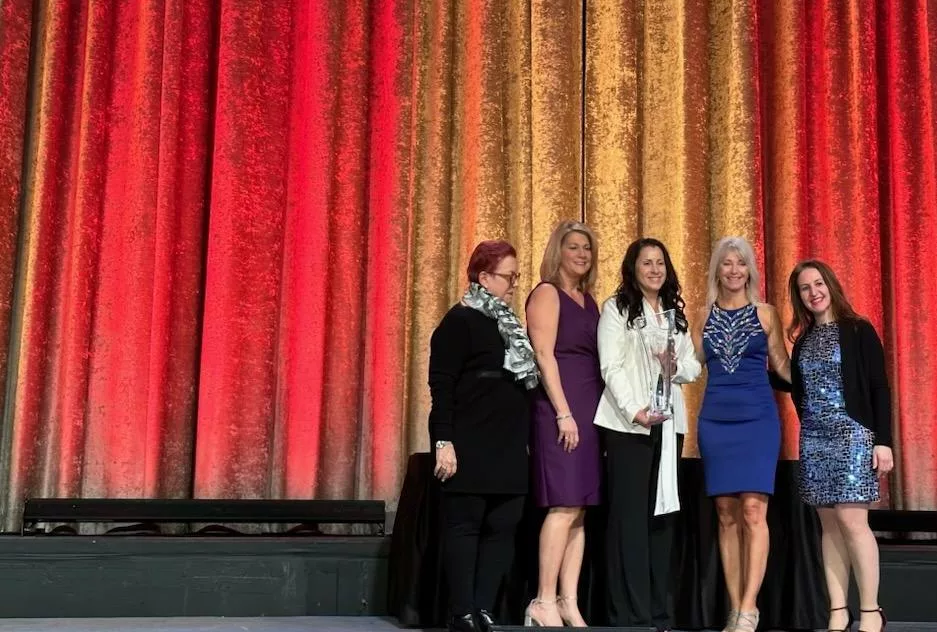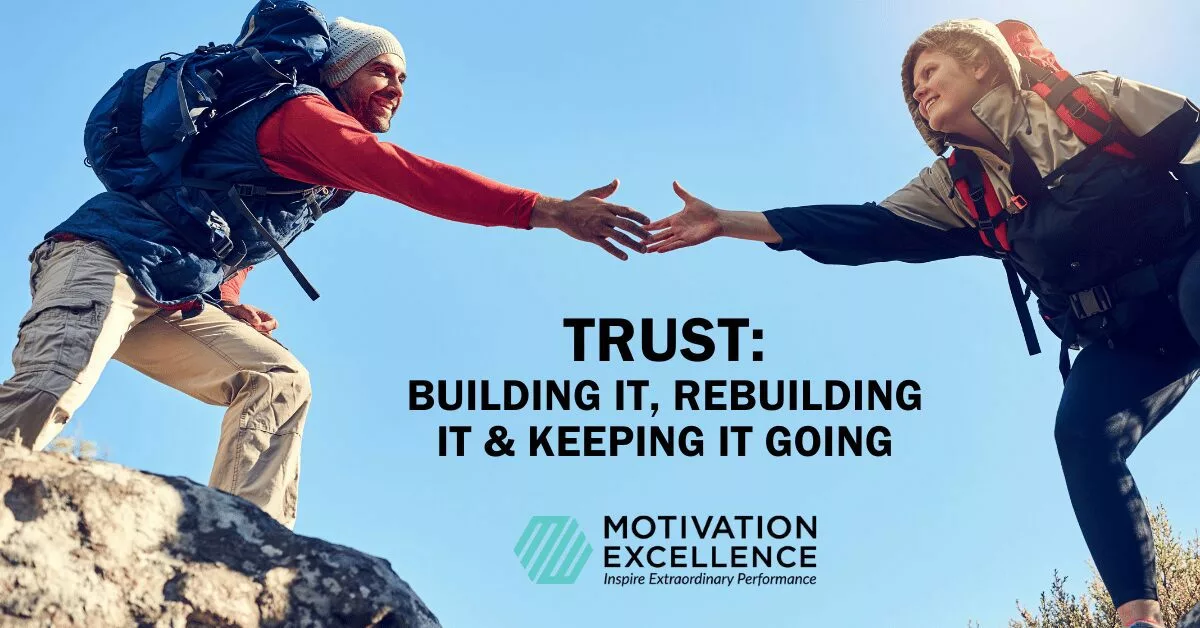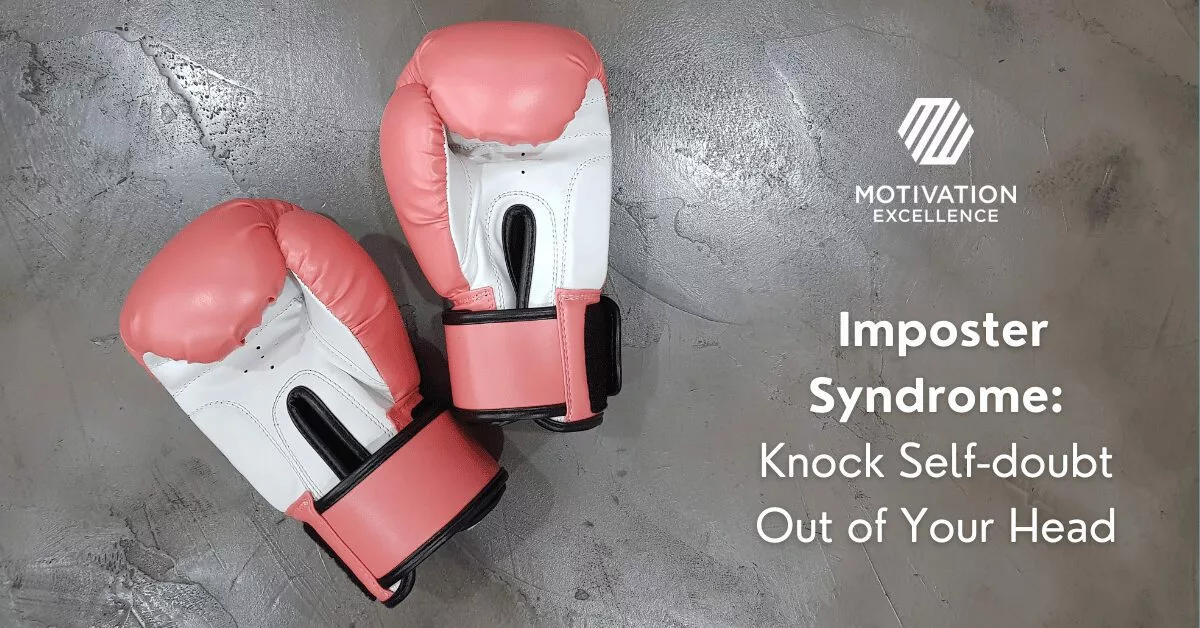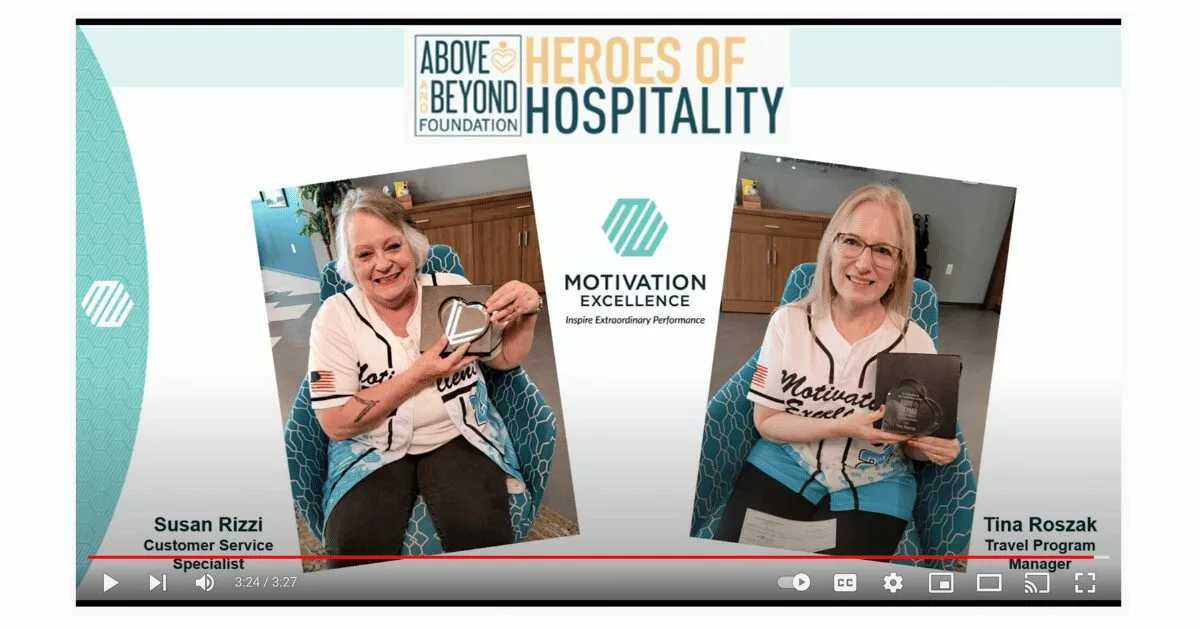Learn How to Find Your Joy and Spread it Around!
Did you know one of the most popular courses of all time at Harvard is about happiness? It started in 2006 with more than 1,400 students enrolling in Psy 1504: Positive Psychology. There are multiple joy-centered Harvard courses offered today for students, and at least one business course, Managing Happiness, accessed online for free, for us non-Harvard admits (the next one starts in March!). The latter is taught by Harvard professor, Arthur Brooks, who also has a series of podcasts, books and weekly writings in The Atlantic on the topic of building a happy life.
The Happy Math
Learning how to be happy is a hot topic right now, and, as a society, it seems we need the lesson. CNN reported in 2022, that the General Social Survey saw a record-low number of respondents (19%) say they were “very happy” and a record-high number (24%) say they were “not too happy.” For perspective, in every poll since 1972, up until the pandemic, the percentage of people who reported being very happy was higher than those who said they were not too happy.
Harvard’s Professor Brooks says people can learn to find joy, rather than angst. He talked to The Harvard Gazette recently about his brand new Leadership & Happiness Laboratory which investigates the science behind achieving happiness and spreading it. Brooks says positivity can be split into three parts:
- 50% genetics
- 25% circumstances
- 25% habits
By tweaking your habits, says Brooks, you can change your circumstances and manage your genetics. In a fall 2022 GQ article, Brooks declared he’s actually not a naturally happy person, but he puts theory into practice daily to improve his outlook. He says happy people observe their desires, emotions and cravings without reacting to them immediately. They’re in control, rather than being controlled.
Take Our Advice
Here at Motivation Excellence, we focus on improving performance through a variety of solutions. The end result not only happens to be a financial gain for our clients, but also a positive improvement in relationships with employees, sales teams and channel partners. If someone is happy to be connected to your company, the positive vibe can spread, increasing productivity, sales and retention.
For this blog, I decided to reach out to some of my coworkers to give tips on how they find joy, or keep a positive outlook, as often as they can. After all, we spend the majority of our time helping our clients and their participants to be happy, so, perhaps we can help you too!
Mark Bondy, Vice President, Chief Transition Officer: “I like to get down on the floor to play with my grandkids or dog. It really simplifies life and allows me to forget about stress and enjoy the moment.”
Jillian Fehrenbach, Customer Service Specialist: “I’ve been focusing on personal growth a lot lately. I switch between a couple of books that help me cultivate positive thoughts—with the goal of being better tomorrow than I was today. One of those books is A Gift of Peace: Selections from A Course in Miracles. A summary of topics include:
- Choosing happiness with purpose,
- Making a mind shift and selecting a new path,
- Sharing happiness with others,
- Correcting perception by rejecting illusions.”
Tim Merriman, Independent Strategic Account Director: “I work on a few things on a consistent basis which include:
- Count my blessings and practice abundant gratitude,
- Be more aware of my surroundings and others,
- Encourage others through random acts of kindness, and
- Listen more, talk less.”
Mark Houska, Strategic Account Director: “As a member of our sales team I try to be very methodical in my approach to prospecting and building a pipeline. You know there’s a lot of rejection in sales, but the numbers will bear out through consistent effort. There’s satisfaction in remaining positive and making progress with both small and big wins. Celebrate both!”
Sky Capriolo, Senior Marketing Manager & Brand Ambassador, and your author: As someone who has struggled with depression, I absolutely believe there are things I can do consistently to help alleviate the downward tug and give myself positive momentum.
- Exercise is key for me. I try to get my heart pumping for at least 30 minutes, 5-7 days a week.
- Nutrition – I always feel better when I know I’m eating well.
- Being in the moment – my husband had cancer a few years ago and that really put a lot into perspective. We absolutely practiced appreciating each day, and continue to do so.
- Spreading kindness and compliments. If I think something nice about someone – a stranger or a friend – I make it a point to say something. Making others feel happy, makes me feel happy too!
Live a Long, Happy Life
It’s easier to fall down than get back up, that’s just plain physics. The mental struggle is similar. It just seems easier to fall into that negative thought loop spiral, than push ourselves up with positive affirmations. According to PyschCentral, there are impactful characteristics happy people share that we can all work on.
Happy people:
- Like themselves
- Have personal control
- Expect good things to happen
- Have meaningful relationships
- Enjoy balanced lives
Here’s one more very interesting fact about people with positive outlooks; Happy people live longer. The Harvard Health Blog (back to Harvard; full circle storytelling makes me happy!) shared a study showing people with higher levels of optimism had a greater chance of living past the age of 85. There are also studies that show happy people have fewer chronic illnesses and lower health-related costs.
If you need more convincing to strike out and try living a happier life, remember, some say it takes more muscles to frown than smile. And, having laugh lines on your face, shows you’ve lived a great life (and got the last laugh)!
Motivation Excellence Wins Prestigious SITE Crystal Award Two Years in a Row
The pinnacle of the incentive travel industry, the Society for Incentive Travel Excellence’s Crystal Awards, recognizes companies that produce remarkable travel experiences. SITE honored Motivation Excellence and our client partner, Farm Bureau Insurance of Michigan, for Excellence in Incentive Travel: Europe at their global conference in New York City this week.
“Being recognized by SITE and the Crystal Award judges is always an amazing feat that reinforces our dedication to our clients and industry partners. Winning an award two years in a row is absolutely phenomenal and says a lot about our incredible team of travel professionals. Accepting this award with a valued client is a testament to the partnership we have built and their commitment to always wanting to be better than the previous year. Thank you Farm Bureau and thanks SITE,” says David Jobes, President and CEO of Motivation Excellence.
Accepting the award were Rhonda Brewer, VP Sales at Motivation Excellence, Deb Dansby, VP Marketing at Farm Bureau Insurance of Michigan and Amy Crossett, Director, Business & Strategic Development at Farm Bureau Insurance of Michigan. Both Brewer and Dansby delivered thank you comments on stage.
“From our perspective, experiences like this are extremely impactful to our ability to attract and retain our salesforce. Our goal is to design and deliver exceptional incentive experiences that are not available to the ordinary traveler. Our partnership with Motivation Excellence is what allows us to deliver those experiences,” Dansby relayed on stage.
The award-winning experience occurred in May of 2022 and encompassed traveling with nearly 300 qualifying agents to Dublin and Killarney, Ireland and then extending with the top 25 agents and their guests to London. Highlights of the experience included exclusive meals atop London’s Tower Bridge and Kensington Palace, an exhilarating James Bond-themed boat ride down the Thames, a takeover of the Guinness Storehouse and quality time spent with the people of Ireland while visiting County Kerry.
Brewer had this to say as she accepted the award: “We wouldn’t be here without our fantastic and long-time client, Farm Bureau Insurance, our DMC and hotel partners and our team that makes the magic happen. Thank you to Wallace Travel, Spectra, Hotel Europe, The Shelbourne and the Langham in London for your partnership to create this incredible program. We love to inspire extraordinary performance, and we absolutely did, as a team!”
Dansby reports that 98.6 percent of the attending agents said they made valuable new connections or learned something that will help their profession while on the travel experience. 87 percent said the travel reward was part of their personal business goals. Agents regularly report that once they’ve been on one of these reward experiences they strive to go again.
As part of their winner’s case study, SITE had this to add: “Showing true wraparound benefits stemming from every corner of their program, Motivation Excellence continues to be a standout exemplar of incentive travel’s transformational impacts.”
Incentive travel companies submit for awards anonymously. Motivation Excellence won the SITE Crystal Award last year for Most Creative Solution Deployed at a Time of Crisis for our program “GEM Club 2020: From Kauai to Concierge.”
Learn more about travel experiences offered by Motivation Excellence.
Failure is a Never-Ending Opportunity
Well, folks, it’s a new year. For many, that means resolutions. And for many of those people, it means failing those resolutions within the first month. And there we have it…using the word “fail” right off the top of a new year. There are reasons people often fail at New Year’s resolutions and ways to fix them, as we wrote about in a past blog, but this post is about why failure is not an ending or the opposite of success.
Don’t Be Afraid to Fail, Be Afraid of Not Trying
Did you know there’s an official psychological diagnosis for people paralyzed by their fear of failure? It’s called atychiphobia. (In case you have a fear of mispronouncing words, say it like this: a-tick-eh-fo-be-ah.) The Atlantic author, Arthur Brooks, writes that people who suffer from this malady are more prone to anxiety, depression and a lack of enjoying life’s adventures. He writes about three steps you can take to overcome what can be a quite debilitating condition.
- Focus on the present – don’t worry about what could happen tomorrow; embrace today
- Visualize courage – practice in private how you’d like to react to a fearful situation
- Practice humility – take yourself off your own pedestal (special note to perfectionists)
People who are afraid to fail, often don’t take risks in the first place. We’re talking about small risks (talking to a stranger at a work conference) as well as big ones (investing your life savings in a start-up). Without taking risks, your levels of failure and success are pretty much flatlined. Being in a place where you can take calculated risks is preferable. Remember, the thrill of victory is greater when you’ve also experienced the agony of defeat!
The Pros of Failure
BetterUp.com states the biggest problem with failure is our own perception. It can take a nasty toll on our self-esteem. If you can create opportunities to feel successful along the journey, then the final outcome doesn’t have to be a make-it or break-it situation. Read our take on celebrating small victories on the way to a big goal here.
Setting yourself up for mini successes is a great way to keep motivated. But experiencing failure is absolutely OK and often critical to your ultimate success down the road. PsychologyToday.com writes about three positives of failure that many don’t initially think about.
- Illustrates what we’re missing – skill set, personality trait, resources
- Highlights what we really care about – time invested shows what matters
- Allows us to take a fresh start – who doesn’t want a do-over every so often?
In addition to the above three, failing is a great teacher! We all learn how not to do something with each step backward. Being a lifelong learner is critical to leadership, empathy and a growth mindset. People with those traits see each failure as an opportunity to leap forward. It all comes down to owning a positive perspective.
Come Fail Away with Me
If you’re singing the classic Styx song, “Come Sail Away,” in your head now, it was planned by your author. 😊 Dennis DeYoung, frontman for Styx, said in a 2021 interview with Blabbermouth.com that the group’s 4th album, “Man of Miracles,” was a complete failure. It led to no one wanting to represent them until a radio program director surprisingly started playing, “Lady,” a song from a previous album, and it hit big. Obviously, that led to a litany of great songs, including, “Come Sail Away,” which some say pushed them into superstardom.
This leads to an interesting question. There are an incredibly large amount of people in the world who are talented but never succeed at the levels of a band like Styx. Does that make them all failures? I hope your answer to this is a resounding “no!” Sometimes success relies on a lightning strike of good fortune and that is obviously out of our control. In cases like this, the failure would be to not continue trying, regardless of the eventual outcome. And that, my friends, is why resilience is the best friend to both failure and success!
Happy New Year – now go on out there and try, fail, succeed, fail again and keep on going!
Be a Mentor – It Can Give YOU a Boost Too!
We all know how awesome having a mentor is, but did you know being a mentor is very rewarding as well? Mentors gain quite a bit from the relationship, like improving leadership and communication skills. But, you know what’s even better? According to one study, people who acted as mentors were six times more likely to be promoted and 20% more likely to get a raise. I bet that got your attention!
You Can Do It
Don’t think you can be a mentor? Think again, according to ArtofMentoring.com. Read their article about why you absolutely can be qualified to mentor. Remember, not all mentorships are professional in nature. You can be a trusted advisor in nearly every aspect of your life from recreational activities, to church, to school, to the workplace.
One Up One Down is a professional mentor matching organization for “kick-ass entrepreneurial women” in business and technology. This org says the most valuable mentors are the ones with the most relevant experience, not necessarily the ones at the top of the corporate ladder. With that in mind they place a lot of “near-peer” matches. The mentor-mentee pairing might only be a few years apart in age, which means they can empathize better.
Make it Part of Your Business
100% of Fortune 50 companies have a mentoring program; 84% of Fortune 500 companies do too. It just makes sense. The Mentor Method website outlines other stats showing the power of the mentor-mentee relationship, including higher retention rates among those involved such a program.
At Motivation Excellence, many of our employees participate in mentoring relationships either in our industry or out in the community. Our VP of Sales, Rhonda Brewer, helped start a two-way mentoring program in 2016 for the Society for Incentive Travel Excellence Women in Leadership committee and their Young Leaders program. It’s called Advisors in Action.
“Unlike a more traditional mentor program, we thought it was important to have a more back and forth relationship from both participants. That way each learns and grows from the conversation. My partners, who are newer to the industry, have a platform to ask questions in areas I may have more background and experience. For me though, it gives me the chance to learn from the next generations and what is most important to them which then helps me be a better manager.”
Brewer says Advisors in Action was especially effective during COVID when the travel industry shut down.
“Having the connection via this program was significant for me. I was able to connect with others and navigate through what was next, whether it be with job elimination and managing that, or looking for the next career move. It provided a community of support that was critical to a lot of people.”
Make it Happen
The benefits of being a mentor are great. From building your own confidence to sharpening your emotional intelligence, being part of an advisory relationship is just as impactful to the mentor as the mentee.
So, how do you get started? Figure out where you want to offer your expertise. Then hop online and search for organizations that fit your interests. There are groups that meet in person, allowing you to connect personally with people in your area, and other orgs that match people around the world for one-on-one mentoring sessions online.
Whether you want to help someone reach the next level of their education, job, athletic prowess or spiritual connection – or – just be a person who is THERE for another – mentoring is a role you can grow into, learn from and leave a mark on the community around you. Good luck!
Trust: Building It, Rebuilding It & Keeping It Going
Trust is a huge factor in all relationships. Knowing what to expect from someone in any given situation is a fundamental element of trust. Often, trust starts out as a given, until it’s broken. That’s when huge issues can arise (or worse, fester) and cause a breakdown in communication and productivity.
Building Trust
Building trust really begins the moment a relationship does. There’s an implicit agreement in play that relies on both parties being honest, dependable, and transparent. At work, coworkers build trust through joint projects. Are you meeting your deadlines? Following through on promises? Reliable? Indeed.com reports honesty, admitting to mistakes, and participating in office activities all contribute to colleagues trusting you.
A blog on BetterUp.com says the above is an example of “Practical Trust.” To take the trust level up a notch, they recommend creating “Emotional Trust,” which means going above and beyond expectations and committing to building personal bonds with people. Their article says successful leaders have a higher level of Emotional Trust than their counterparts.
Key traits to possess in order to build trust include:
- Being honest
- Communicating well
- Admitting to mistakes
- Getting to know people better – i.e. hobbies, family, weekend plans
- Being an involved member of the team
- Following through on promises
Rebuilding Trust
Ouch! When you’re in a situation where you’ve lost someone’s trust, it’s pretty painful for everyone involved. Whether it’s as a leader, a colleague, a friend or a family member, there are steps you can take to start the rebuilding process. Starting sooner rather than later is the best way to tackle this uncomfortable situation.
ZenBusiness.com’s blog on rebuilding trust goes into detail about several steps you’ll need to take to get back on the trust track, including:
- Acknowledging what happened
- Allowing feelings to surface
- Taking responsibility
- Offering and accepting forgiveness
Active listening skills will really come into play when you’re trying to rebuild trust. Even if you don’t see what you may have done wrong, being able to hear someone else’s reasoning and reciting it back is critical to moving forward.
Forbes.com published an article on rebuilding trust that breaks the process down into three parts.
Manage Yourself
- Take personal accountability
- Accept both parties can have a “truth” in the situation
Have the Tough Conversation
- Listen well
- Find common goals
Follow Through with Actions
- Actively look at the other person in a new light – catch them doing something right
- Deliver on promises
- Communicate honestly
Keeping It Going
There’s no secret formula to maintaining trust with people. It’s definitely a case of “actions speak louder than words.” If having people trust you is crucial, then the work sits squarely on your shoulders. Being self-aware is critical. Knowing how you are perceived can help you make positive changes as you strive to keep a bridge of trust strong between you and others.
As you interact with people throughout the day, take a moment to recognize the level of trust you have with each person. Are there some who may not be 100% trustful of you? If you want to improve that relationship, then take steps to work toward a mutual level of respect, which goes hand in hand with trust.
- Only take on commitments you can handle
- Make sure your actions back up your words
- Be responsible and accountable
Without a certain level of trust, relationships will stall. If you’re hoping to move up in your career or be a better friend or more reliable family member, be honest with yourself first; examine how well you follow through on obligations. Make adjustments, and over time you’ll find a new level of trust while creating more meaningful relationships in every aspect of your life.
Teamwork or Me Work – Which One Gets the Job Done?
We just wrapped up our fall sales meeting. Over three days, our sales team members, executive team and a few others, including myself, gathered at our Motivation Excellence headquarters in Schaumburg, Illinois. We do the same thing in the spring. It’s a wonderful time for collaboration on certain projects, like revamping our proposals and talking through marketing strategies. We have a limited time together, which spurs a consistent workflow. After it’s done though, we each go our own way and focus on our individual task lists again.
Balance Matters
For most businesses, having a balance of teamwork and solo work is the norm. On any given day we have teams working on client proposals, special projects, and developing campaigns to solve our clients’ needs. But each person on the team usually has work they have to do on their own to contribute to the overall plan. For instance, if we are building a performance improvement website, I write the copy, our graphic arts director designs the look, the performance manager decides what metrics are best to measure based on the client’s needs, and our IT team does all the code magic to create an easy user experience. We meet as a team at the outset, plan our vision and then disperse to complete our individual parts. It’s a great way to take advantage of the benefits of both collaborative and individual work time.
Alone but Not Lonely
We definitely have people who prefer to work alone, and others who thrive on working alongside colleagues. There are times when both are important. Let’s look at times when flying solo is better. According to a FastCompany.com article, working alone is especially vital for initial creative thinking, building a sticky relationship with a customer and writing (reports, articles, etc.). Indeed.com says being a lone wolf is also great for focus and efficiency. Responsibility rests on only one set of shoulders though.
Meet the Team
Teamwork is touted for many benefits, including building connections with colleagues, brainstorming, creating inclusivity and sharing skills. In an assembly line scenario, having several people working together definitely beats one person working alone. Productivity and profits can rise with the right teamwork in play. Teams also tend to be motivating with everyone working toward one goal and one deadline. Teammates can offer support and share in the responsibility of the task too, allowing accountability to spread across many shoulders.
One or Some?
How do you decide which way to go? Ask yourself these questions:
- Is a diversity of opinions important to the outcome?
- Do I have the skills needed to finish the project alone?
- Do I want to share the success/failure?
- Do I have a blind spot that I might not be aware of?
- Will a team be more or less efficient/profitable for this task?
As you answer each question, you’ll be forced to decide if bringing a team together or standing on your own makes the most sense. In the end, even if you’ve done all the work yourself, asking others to proofread, give feedback or build on what you started creates some teamwork vibes.
No matter how you prefer to work, you’ll likely be asked to be part of a team some of the time. It’s important to show appreciation for others’ efforts and be a positive contributor to group discussions. Nothing halts creativity and ingenuity like the person who insists on dissing everyone’s input! And remember, when you’re part of a successful team, the celebration is much more fun than a party of one. 😊
A Quarter for Your Thoughts on Year-End Rewards
A penny just doesn’t entice anyone for their thoughts anymore (or ever?). What does get people thinking, is how best to reward their top performers at the end of the year. We are here to help you take that train of thought all the way into the station with flair!
At Motivation Excellence, with our vast team of program designers, we know what motivates performance improvement. It’s our specialty. We also know from decades of understanding emotional decisions that some rewards shine far brighter than others. We’ve found the more choice someone has in deciding their own reward, the better the results for you and them!
Think this through with us. It’s the end of the year (or quarter, or promotion, you get the idea) and you’ve done really well because of the people integral to your business. You want them to benefit from their extraordinary performance AND you want them to have those warm, fuzzy feelings about your company so they remain engaged, happy and loyal.

Now picture their faces when you hand them a bonus. They’re pretty happy, right? They’re smiling and thinking of all the ways they’d love to spend that extra money. We’ve all had a windfall before and know the routine. You spend it in your head in ten different ways, on really cool things, but once it gets deposited into your checking account, it actually gets spent on gas, groceries and repairing a flat tire before the fun ever gets started. They’re grateful for sure, but they might not have any kind of lasting memory to tie fondly to you and your company.
Now imagine you hand them a lifestyle upgrade reward package that includes a mountain bike, a mount for their car and safety lights. Or, it includes their choice of three high-tech kitchen gadgets and a gift card to order steak or seafood. Perhaps, it’s a travel package with airline and hotel gift cards, a new piece of luxury luggage and a hot air balloon experience. With our MAXRewardsYourWay solution, we can build amazing reward packages at a variety of price points ($2,500 and up), so your top achievers can choose what reward is best for them!
Here’s the best part. Recipients LOVE their reward because they chose it. They post about it on social media. They take photos and show their friends and family. They use the items regularly and when they do, they’re reminded they earned them through their work with YOU. An emotional connection is established, which often leads to a long-term bond.
This works for channel partners too! If you’re looking to push out a new product, gain market share, or reward long-time loyalty, offering an incentive in the form of a highly promotable reward package is easy and affordable.
To recap, here are some of the many benefits of our MAXRewardsYourWay offering as we head into the end of the year:
- Our lifestyle packages can be customizable to your recipients’ needs
- You only pay for the packages selected
- There are low administration costs
- You get high flexibility for your budget
We have a wide variety of other solutions ready to reward your best people too. From instant appreciation in the form of restaurant and retail gift cards with MAXRewardsNOW, to long-term incentive programs with rewards like five-star, one-of-a-kind travel experiences, Motivation Excellence is ready to help you Inspire Extraordinary Performance with the people who mean the most to your business’s success.
This thought train has now arrived at the station – hop on to conduct your year-end reward strategy to the fullest. Choo-choo! Contact us today to recognize your top performers at me@motivationexcellence.com.
Imposter Syndrome: Knock Self-doubt Out of Your Head
Photo credit: Arisa Chattasa, Unsplash
Did you know the people most likely to suffer from imposter syndrome are high-achieving, go-getters? It’s ironic, isn’t it? The people who most deserve to feel good about their accomplishments end up second-guessing their abilities and downplaying their skills. It can be a vicious cycle, tearing the core of someone’s confidence to shreds and creating a self-fulfilling prophecy.
Women seem to fall to this fraudulent feeling more often than men, but a Harvard Business Review article claims that has more to do with existing workplace biases than anything else.
Are You Prone to Imposter Syndrome?
There is a general consensus that certain personality types do lend themselves to suffering from imposter syndrome more than others. Healthline.com outlines the characteristics of each.
- Perfectionist
- Natural Genius
- Rugged Individualist
- Expert
- Superhero
No matter what dominates your personality make-up, it’s important to recognize if you tend to minimize the good and catastrophize the bad when it comes to your personal experiences. We’re not talking about being humble or falling on your sword here either. Imposter syndrome is internal, not external. It lives inside your mind, casting a cloud of doubt over all your bright spots. Psycom has a quiz you can take to see if you’re prone to overwhelming self-doubt despite evidence to the contrary.
Don’t Listen to the Devil
We’ve all seen the image of an angel on one shoulder and the devil on the other. People with imposter syndrome tend to lean toward listening to the devil. In this case, the little red character isn’t telling them to do something bad, it’s telling them they are bad. Bad at what they do. Bad at making decisions. Bad at managing crisis situations. Bad at doing whatever it is they actually do very well!
This leads to incessant worry that they’ll be discovered as a fraud and lose their position. An especially painful twist is that those who feel like an imposter take on all the blame for their mistakes, but none of the glory for their accomplishments.
Fight Fairly – Especially with Yourself
A Forbes.com article gives tips to combat the imposter phenomenon, including talking about it with other professionals in your ranks. There are a lot of other ideas to help you too. Some of our favorites are below.
Stop the negative feedback loop: talk back to yourself, defend your abilities with a passion
Claim your wins – big and small: actually, write them down as they happen and keep them visible as a reminder
Realize your limitations: don’t expect to excel at everything, or be perfect at anything the first time around
Create a Trusted Circle: know the people you can turn to for an honest take on how you’re feeling
Recognize luck versus work: if you can recreate it, it’s not luck, it’s your hard work
Finally, know you’re not alone! According to Psycom, roughly 70% of people in the U.S. experience imposter syndrome at some point in their lives. It may come and go depending on the situation, so having several tools to fight it is important. Find the ways that help you the most and then share them with someone else struggling to accept their awesomeness!
Get to Know ME with Bob Hertel
Bob Hertel, from our travel department, is a man of few words but exhibits sly humor and wise observations. As a long-timer in the industry, Bob helps us create outstanding travel programs filled with “Wow!” moments that motivate people to be sure to attend the following year! Keep reading, and watch the short video (like I said, few words…), to learn more about Bob! Thanks, Bob, for letting us Get to Know you better.
What’s your title and how long have you been in the incentive industry and at VIKTOR/Motivation Excellence?
I’m the Travel Purchasing and Planning Manager. It’s been 17 years in the incentive business with VIKTOR and now Motivation Excellence, but 25 years total in the events industry.
What does your job entail?
Working with sales to understand a client’s needs. Sourcing vendors. Building budgets. Building proposals. Vendor relations.
What’s something special about the people you work with that you’d like to share?
It’s a good group of people who really care about the clients and their guests.
What’s an unknown or odd talent you have?
It’s unknown for a reason.
What motivates you to accomplish things in your life (work or personal)?
Being able to provide a comfortable life for me and my family.
What do you enjoy doing outside of work?
Watching and attending Michigan State football and basketball games. Home improvement. Building sets for musicals when my kids were in high school.
One thing that always makes you laugh is?
Any clever comedy. I really dislike formulaic comedy (think Friends).
What have you done that helped you get through the pandemic?
A ton of home improvement.
What is the most unusual job you’ve ever had?
Cue cards for a Disney Channel show.
This month, our theme for social media is about competition and how it can benefit both personal and professional growth. How do you feel about competition? Do you regularly use it to meet goals?
I like competition and generally think it’s healthy. Do I use it to meet goals… not really. I try to compete with myself to improve. When I see people competing to be the smartest one in the room, it generally does not help get anyone across the finish line any better or faster.
The Above and Beyond Foundation Hero Awards at Motivation Excellence
Two Motivation Excellence Employees Get First Agency “Heroes of Hospitality” Awards!
It’s with great pleasure and pride we announce that The Above and Beyond Foundation awarded two Heroes of Hospitality awards to two of our teammates at Motivation Excellence! They are the first winners awarded this honor at a travel and incentive agency. Past winners have come from hotels and destination management companies.
Let’s meet our winners! Susan Rizzi is a Customer Service Specialist who works daily with our clients’ participants who need assistance redeeming their award points for just about anything. Susan has helped people use their points for engagement rings, complicated travel reservations and home improvement projects, to name just a few. What makes Susan really stand out is her willingness to work outside business hours to make sure her participants get the personal and high-touch service they earned through their incentive programs. Oh, and her sparkling personality goes a long way too!
Our second winner, Tina Roszak, is part of our travel team as a Program Manager. Tina was recently assigned a travel program to manage with only a few months turnaround time. Normally, our travel teams have well over a year to plan and execute a program. She led the way for a successful program in less-than-ideal circumstances. Tina’s always positive and can-do attitude really stands out in every program she manages!
If you’re up for a feel-good, tear-inducing video, watch both of our winners get the surprise announcement at a recent company-wide event right here.
The Above and Beyond Foundation started four years ago as a way to reward frontline hospitality workers and help them achieve their professional and personal growth goals. During the pandemic, it became a lifeline to industry workers who were laid off or had their hours drastically reduced. Motivation Excellence sourced and delivered $500 gift cards for TAABF to award to those who applied for assistance. There are three awards available through the foundation: Heart of Hospitality, Heroes of Hospitality and Helping Hospitality.
We value our partnership with this great industry organization. We are truly honored to be the first travel and incentive agency to award two of our employees!












